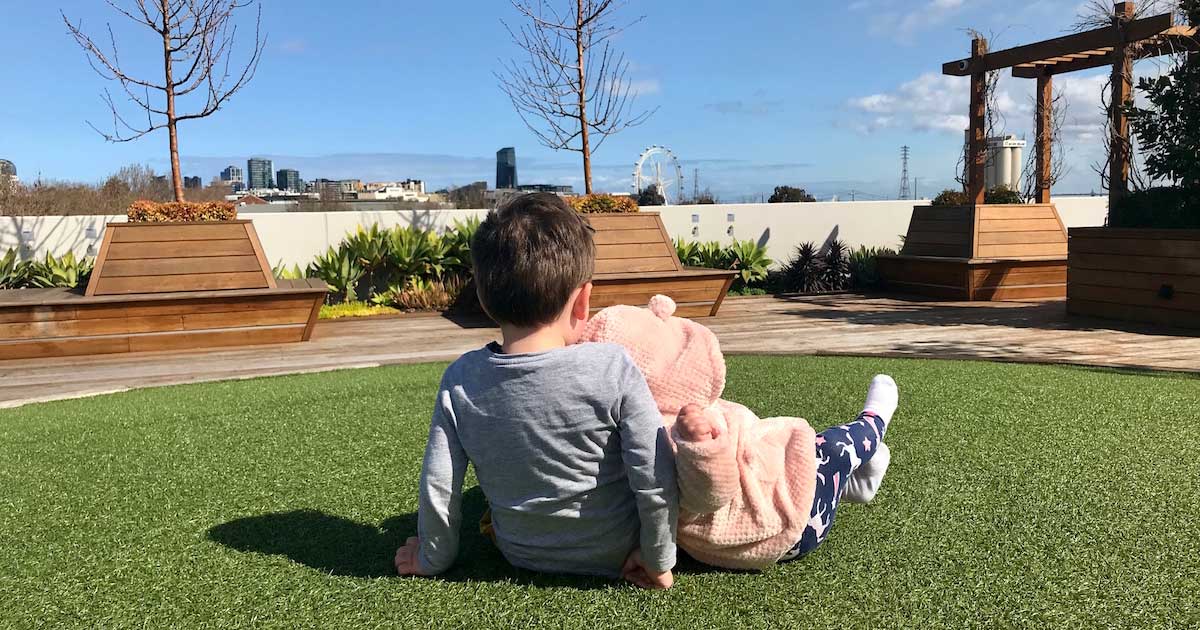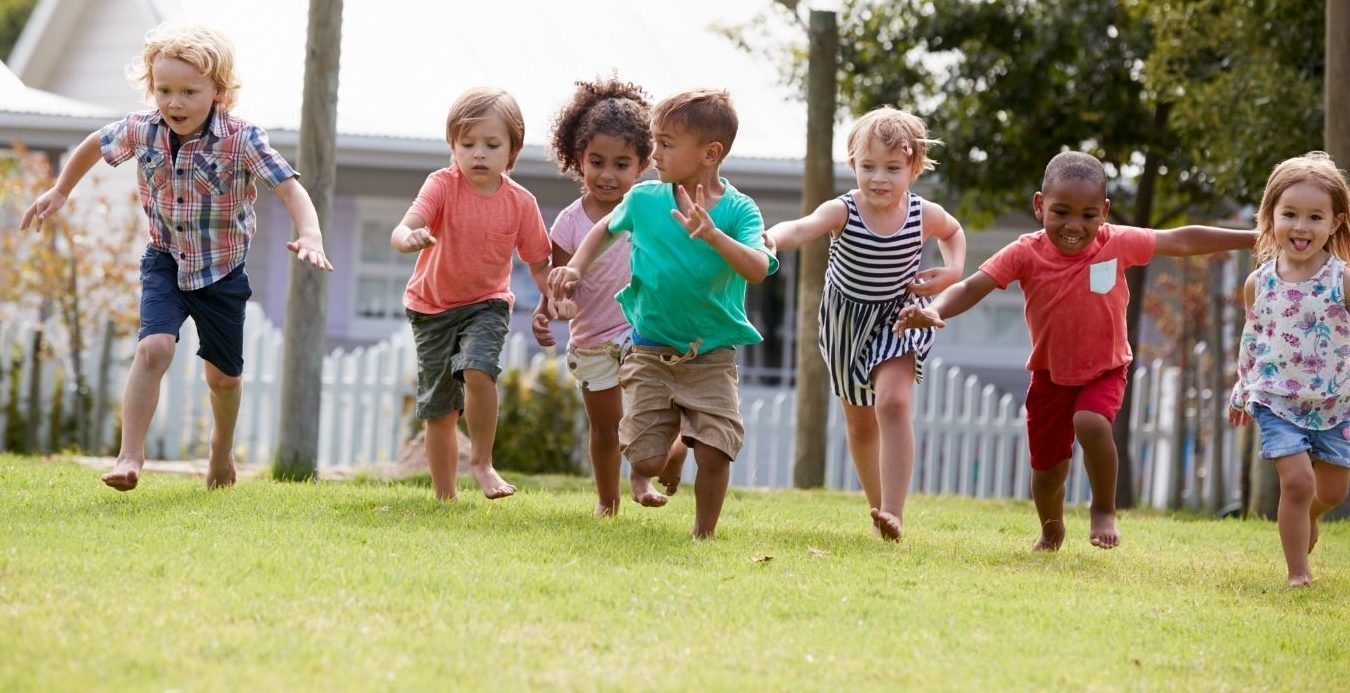
The transition to ‘big school’ is not just about the kids but also their parents, Natalie Moutafis discovered. Here she shares her tips on surviving the first year as a school parent.
The finish line is almost in sight – the end of the school year is upon us. Before we know it, it’ll be summer school holidays, Christmas (if you celebrate it), and a collective sigh of relief from students and parents around the country who are looking forward to a well-earned break.
In the Tiny Human household, we’ve already received the booklist for Year 1 next year, and I wasn’t mentally prepared for this. I’m still looking at my preppy kid, thinking he’s still too little to be at school some days – don’t even get me started on my pre-kindy kid about to move into proper kindergarten!
But over this past year, as my first time navigating life as a school mum, I’ve learnt a few things. Here are my 12 tips on surviving the first year as a school parent:
1. Get a calendar
There are so many different events, special days, and due dates for things that you’ll need a calendar to make a note of everything. You will forget something. Your child will be upset. Life will go on. I use both an electronic calendar and a physical one – do what works best for you.
Find out if there is a year level or even class online group (Facebook or WhatsApp etc.). You’ll meet other families this way, be reminded of upcoming events, hear of any play dates that might be happening, and get to know everyone.
2. There’s a day for everything
Our school, and many others, love to celebrate ‘special days’. And that usually means a dress-up day (e.g. 100 days of prep – dressed up as ‘senior citizens’, book week, fundraisers) or a coloured theme day (Day for Daniel – red t-shirt, Harmony Day – orange t-shirt, Biggest Morning Tea – yellow t-shirt, Colour Fun Run – white t-shirt etc.). Make sure as soon as you know there’s a special day coming up that you immediately check the dress-up box or wardrobe and get what you need ASAP because you will struggle if you don’t get on to it early.
Another good idea if these events are the kind that your child needs to contribute a ‘gold coin donation’ is to head to the bank and get some notes turned into a supply of gold coins. Keep it somewhere handy, so you can easily grab one on the day.
3. Paper, oh so much paper!
Not only do we see so much paper come home in the form of artwork, creations and writing examples, but because they love it so much – it spills over at home. I’m constantly buying reams of paper to encourage these newfound talents. We do our best to recycle (wrapping birthday presents in the artwork is a great way to recycle!) but there is so much more paper compared to kindy.
4. Birthday parties
All these new school friends mean many more birthday parties. And all the kids want to have one. Having a stash of birthday cards, birthday wrap (or reuse that paper I mentioned above) and even some presents is handy. And don’t forget to send your invites out for your own party a good 3-4 weeks in advance so as to avoid potential date clashes with other students – or better yet, find out which children have a birthday around the same time and do a joint event to share the load.
5. The juggle is real
The school days are short when you work full time (and I’m sure they are even if you don’t work full time!). You’ll need to make sure you have either family, after-hours school care booked in (book in advance if possible, as places fill up) or flexible working arrangements set up. It feels like you’ve just dropped them off before it’s time to pick them up again – an alarm on your phone is a great idea, especially in that first term. Oh, and once you do get them out the door, they often drop a last-minute bomb on you – something like it’s their show and share day, and they have to take along something special (and you didn’t have it in the calendar).
6. Volunteering
Our school regularly asks for volunteer parent/carer helpers. It might be to help out on an excursion, or it might be to assist at the Mother’s Day stall or school disco. Again, if you are working, those flexible work arrangements can come in handy. But don’t feel like you need to say yes to everything. Once or twice a year is sufficient. You can also show your support to the class or school in other ways. Our classroom teacher regularly puts the call out for fresh supplies of playdough. This is something I can make after hours and deliver to school the next day as a way to contribute.
7. School holidays
Of course, you know there are school holidays, but they do tend to creep up on you. And if you are like me, you also tend to forget that there are more school holidays than you (usually) have annual leave available. So again, the juggle with family/friends, vacation care programs (again – book in advance if possible to secure your spot) and flexible work arrangements.
If you are lucky enough to have enough leave to go away on a family holiday, you’ll need to book that in advance too because the rest of the state (and the others!) are all doing the same thing.
Hot tip: don’t forget to make sure lunchboxes are removed from school bags on the last day of school before the school holidays begin, or you risk returning to a smelly, mouldy lunchbox next term.
8. Making memories
There is a very high chance that the teacher will ask your child to share what they did on their school holidays at the start of the new term. I felt so guilty when we didn’t do anything extra special/exciting during the last school holidays, and he didn’t really have anything to share with his teacher and class. Luckily a nerf gun game with Dad was memorable and made the cut for sharing. But if you can plan even just a special day trip one weekend of the school holidays, it’ll help your child feel included when they need to share with the class.
9. Lunchboxes
Lunchboxes! Oh my! At first, these are fun and exciting, but then the monotony kicks in. Make them in advance if it doesn’t spark joy. Freeze sandwiches and baked goods ahead of time (a good school holiday activity). Pack them the night before. Get your child involved – as they’re more likely to eat it if they’ve had a hand in packing it. And don’t forget that once they make friends at school, they’ll be checking out what their friends are eating and they’ll come home with odd requests like ‘black biscuits with white in the middle and a Batman face on it’, and you’ll scratch your head in the biscuit aisle of the supermarket for a good 20 minutes until you find out that Oreo released a special limited edition Batman biscuit – who knew!
10. Meltdowns
The afterschool restraint collapse is real. You might not experience it at all, or you might only get it some days, or every day. Your child has been doing their best to follow the new rules at school, be on their best behaviour, make new friends and understand all the new content they are learning. It’s only natural that they come home to their safe person and space and let it all out. Allowing them some time to relax and recharge – perhaps a walk to the park, or a play in the garden or even a book and a nice afternoon snack – will all help.
11. Extra-curricular activities
The school will send home information about loads of different activities on offer before and after school. Experts advise not to sign prep students up for too much in that first term of school especially – they will come home exhausted (have those meltdowns) and just generally need time to themselves. For terms 2 and 3, you’ll find your child might start to ask to participate in some of these. But don’t feel like you have to sign up for everything. You know your child so follow their lead. I’ve also discovered that term 4 feels much the same as term 1. The exhaustion is setting in as they come to the end of their first year, and they are happy to have fewer extra-curricular activities on their plate.
12. Just listen
It’s hard not to ask your child how their day was, who they played with at lunch, what they learnt etc. But giving them space and just listening to what they are happy to share will eventually allow them to open up more. For us, we get all the details at bedtime as he’s relaxing and processing his day. Some days it’s just a big cuddle and a kiss, and that’s it. On other days he might tell us about a friendship trouble, and we have a little chat about things he can do to help manage this. Setting up time like this, I’m told by those with much more experience in being a parent of school-aged kids – helps your kids when they are older to feel comfortable opening up about more tricky things they need advice on.
Finally, enjoy it. Enjoy this first year of being a parent to a school kid. They are still quite young and still need us. They won’t always want you to walk them to the classroom door. They eventually will ask you to drop them at the gate – or worse, down the street from the school so they can walk in without fear of being seen with a parent. It’s completely normal not to enjoy it every day of the year, but remembering it won’t be forever helps make those after-school meltdowns a little more bearable.
Stay up to date with our newsletter here

